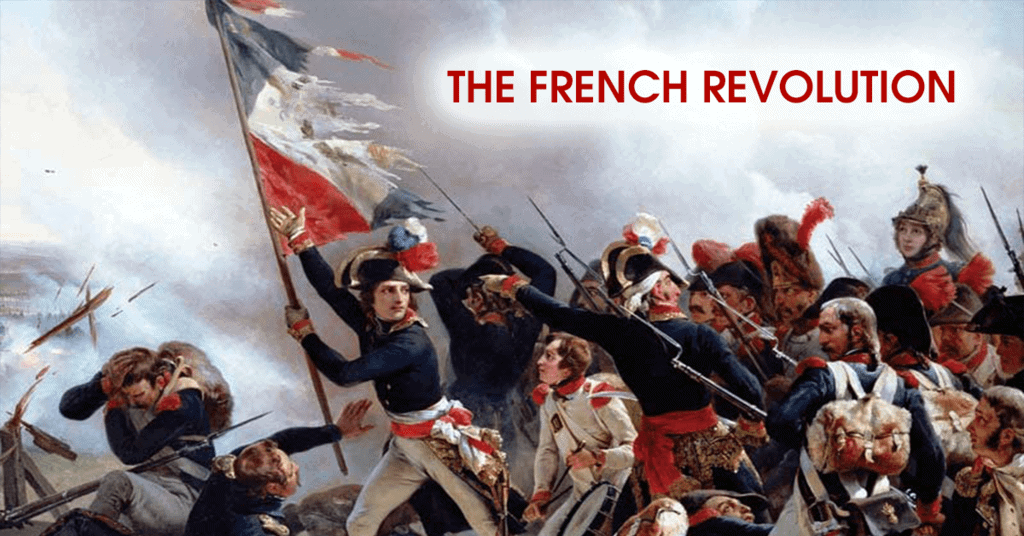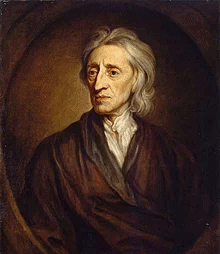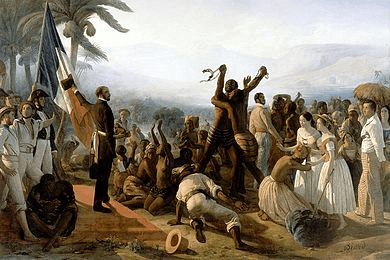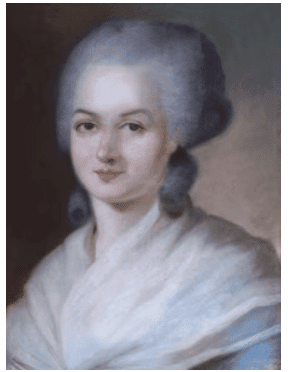Important Points - The French Revolution | Social Studies (SST) Class 9 PDF Download
The French Revolution
- On the morning of 14 July 1789, Paris was in alarm. The king had ordered troops to enter the city, and there were rumours that he might command them to fire on the citizens.
- Approximately 7,000 men and women gathered outside the town hall and decided to create a militia. They broke into government buildings searching for weapons.
- A group of several hundred people then marched to the eastern part of the city and attacked the Bastille, a fortress-prison, hoping to find hidden ammunition. In the battle that ensued, the commander of the Bastille was killed, and the prisoners were freed—though there were only seven of them.
- The Bastille was despised by all as it represented the cruel power of the king. The fortress was destroyed, and its stones were sold in markets as souvenirs. In the days that followed, further riots broke out in both Paris and the countryside, with many protesting against the high cost of bread. Historians later viewed this period as the start of events that eventually led to the king's execution in France, even though most people at the time did not foresee this outcome.

French Society During the Late Eighteenth Century
Composition of French Society
- 1st Estate: Clergy
- 2nd Estate: Nobility
- 3rd Estate: Big businessmen, merchants, court officials, lawyers, peasants, artisans, landless labourers, servants, etc.
- Peasants made up about 90 per cent of the population.
- Some in the Third Estate were wealthy while others were poor.
- About 60 per cent of the land was owned by nobles, the Church, and wealthier members of the Third Estate.
- The tax burden for financing the state's activities fell solely on the Third Estate, including big businessmen, merchants, court officials, and lawyers.
The Struggle to Survive
- Population in France grew from 23 million in 1715 to 28 million in 1789.
- Food grains demand increased due to this population growth.
- Grain production couldn’t meet demand, causing a sharp rise in bread prices, which was the main food for most people.
- Many workers were labourers in workshops, with wages set by owners, which did not keep up with rising prices, increasing the gap between the rich and poor.
- Subsistence crises were common during the Old Regime, worsened by droughts or hail that reduced harvests.
 The struggle of people for survival
The struggle of people for survival
A Growing Middle Class Envisages an End to Privileges
This estate was educated and believed that no group in society should be privileged by birth. Rather, a person's social position must depend on his merit. These ideas were put forward by philosophers such as John Locke and Jean Jacques Rousseau.
- In his Two Treatises of Government, Locke aimed to challenge the idea of the divine right of kings.
- Rousseau developed this concept by suggesting a government based on a social contract between the people and their representatives.
- The American Constitution and its protection of individual rights served as a key example for political thinkers in France.
The ideas of these philosophers were widely discussed in salons and coffee houses, which were vital places for sharing revolutionary thoughts. Their concepts spread among the populace through books and newspapers. The news of increasing overseas trade and the production of goods like wool and silk textiles, which were either exported or purchased by wealthier members of society, heightened awareness and dissatisfaction among the third estate.
- The third estate included merchants, manufacturers, lawyers, and administrative officials.
- All of these groups were educated and believed that no one should be privileged by birth.
- Their vision of a society based on freedom, equal laws, and opportunities for all was crucial for the growing middle class's opposition to privileges.
Moreover, the frustration and protests arising from Louis XVI's plans to impose further taxes highlighted the rising tensions between the monarchy and the emerging middle class. This increasing discontent played a significant role in the eventual demand for changes in the social and economic structure.
 John Locke
John Locke
The Outbreak of the Revolution
The French Revolution unfolded in several phases. When Louis XVI became king of France in 1774, he faced an empty treasury and rising dissatisfaction within the Old Regime society.
- 1789 -The Estates General is called. The Third Estate establishes the National Assembly, with leadership from Mirabeau and Abbé Sieyès. The Bastille is stormed, and there are peasant uprisings in the countryside.
- 1791 -A constitution is created to restrict the king's powers and ensure basic rights for all. Despite signing it, Louis XVI secretly negotiates with the King of Prussia.
- 1792-93 -France is declared a republic, and the king is executed. The Jacobin republic is overthrown, and a Directory takes control of France.
- 1793-94 -This timeframe is known as the Reign of Terror.
- 1795 -A new Convention appoints a five-member Directorate to govern the country.
- 1799 -Napoleon becomes the emperor of France and annexes large areas of Europe.
Louis XVI was found guilty of treason and executed on 21 January 1793 at the Place de la Concorde. Queen Marie Antoinette faced the same fate shortly after.
Reign of terror:
- The time from 1793 to 1794 is called the Reign of Terror, marked by strict control and punishment led by Robespierre.
- Robespierre enforced harsh measures against those seen as enemies of the republic, including former nobles, clergy, and critics. These individuals were arrested, tried by revolutionary courts, and if found guilty, executed by guillotine.
- Robespierre's government introduced laws that set a maximum limit on wages and prices. Rationing was implemented for meat and bread, and citizens were required to consume pain d'égalité (equality bread), which was made of whole wheat, rather than more expensive white flour.
- To promote equality, traditional titles were replaced with “Citizen” for everyone in France.
- Churches were closed down, and their buildings were repurposed as barracks or offices.
- Even Robespierre's supporters called for moderation due to his strict policies. In July 1794, he was convicted by a court, arrested, and executed by guillotine the following day.
- Robespierre stated that “Terror is nothing but justice, swift, severe and inflexible; and is used to meet the most urgent needs of the fatherland.”
Timeline: The French Revolution
- The time from 1793 to 1794 is called the Reign of Terror, marked by strict control and punishment led by Robespierre.
- Robespierre enforced harsh measures against those seen as enemies of the republic, including former nobles, clergy, and critics. These individuals were arrested, tried by revolutionary courts, and if found guilty, executed by guillotine.
- Robespierre's government introduced laws that set a maximum limit on wages and prices. Rationing was implemented for meat and bread, and citizens were required to consume pain d'égalité (equality bread), which was made of whole wheat, rather than more expensive white flour.
- To promote equality, traditional titles were replaced with “Citizen” for everyone in France.
- Churches were closed down, and their buildings were repurposed as barracks or offices.
- Even Robespierre's supporters called for moderation due to his strict policies. In July 1794, he was convicted by a court, arrested, and executed by guillotine the following day.
- Robespierre stated that “Terror is nothing but justice, swift, severe and inflexible; and is used to meet the most urgent needs of the fatherland.”
Did Women have a Revolution?
- Women were active participants in the French Revolution, seeking improvements in their lives.
- Most women from the third estate held various jobs and struggled to access education or job training.
- Women established their own political clubs and newspapers, with around sixty clubs forming across France.
- The Society of Revolutionary and Republican Women was the most prominent, advocating for equal political rights for women.
- Women felt let down when the Constitution of 1791 made them passive citizens. They called for the right to vote, be elected to the Assembly, and hold political office.
- During the Reign of Terror, the new government enacted laws that closed women's clubs and prohibited their political activities.
- Olympe de Gouges was a significant figure among politically active women in revolutionary France. She protested against the Constitution and the Declaration of Rights of Man and Citizen for excluding women from basic rights.
- Early revolutionary laws did enhance women's lives, introducing compulsory schooling for girls and legal reforms regarding marriage and divorce.
- However, the fight for equal political rights continued. The campaign for the vote progressed through a suffrage movement in the late nineteenth and early twentieth centuries.
- It was finally in 1946 that women in France gained the right to vote.
 Women showing their role in the revolution
Women showing their role in the revolution
The Abolition of Slavery
- The Jacobin regime ended slavery in French colonies such as Martinique, Guadeloupe, and San Domingo.
- Due to a lack of European workers in the colonies, a triangular slave trade emerged, connecting Europe, Africa, and the Americas. This trade started in the seventeenth century, with French merchants sailing from Bordeaux or Nantes to the African coast to purchase slaves from local leaders.
- These merchants transported the slaves to the Caribbean for use on plantations. Cities like Bordeaux and Nantes thrived economically thanks to the successful slave trade.
- Throughout the eighteenth century, there was minimal criticism of slavery in France.
- The National Assembly discussed granting rights to French subjects in the colonies but failed to pass laws due to pushback from businesspeople reliant on the slave trade.
- In 1794, the Convention enacted a law to free all slaves in French overseas territories, but this was only a temporary measure; ten years later, Napoleon reinstated slavery.
- Plantation owners saw their freedom as including the right to enslave African individuals for their economic gain.
- Slaves, branded and shackled, were crammed into ships for a three-month journey across the Atlantic to the Caribbean.
- Eventually, slavery was abolished in French colonies in 1848.

The Revolution and Everyday Life
- The years after 1789 in France brought major changes for men, women, and children.
- One key law enacted shortly after the storming of the Bastille in the summer of 1789 was the end of censorship.
- The Declaration of the Rights of Man and Citizen affirmed that freedom of speech and expression is a natural right.
- Under the Old Regime, all written works and cultural activities – such as books, newspapers, and plays – needed approval from the king's censors. Now, towns in France saw a surge of newspapers, pamphlets, books, and images spreading quickly to rural areas, sharing news and ideas about the changes happening in France.
- Freedom of the press allowed differing opinions and political ideas to reach both city and countryside.
- The revolutionary governments aimed to implement laws that would make the ideals of liberty and equality part of everyday life.
- Plays, songs, and festive processions helped people grasp and connect with ideas like liberty and justice. Initially, many viewed Napoleon as a liberator who would bring freedom. These cultural events reached a wider audience than political writings, which were typically only for the educated few.
Napoleon
- In 1804, Napoleon crowned himself emperor of France. He aimed to conquer nearby European countries, taking land from royal families and establishing kingdoms with his relatives in charge.
- Napoleon considered himself a moderniser of Europe. He introduced several laws, including those that protected private property and a standardised system of weights and measures using the decimal system.
- He was ultimately defeated at Waterloo in 1815. Many of his reforms, which carried revolutionary ideas of liberty and modern legislation, continued to influence people long after he was gone.
Important Terms
- Nation -A group of people who share a common language, culture, customs, and history, forming a large political, economic, and social entity that is independent and self-governing.
- Nationalism -A political belief that prioritises the interests of a specific nation, often opposing foreign interference or domination.
- Revolution -A major and often violent shift in political power or organisational structures. This can lead to the rapid overthrow of an established government, such as in the French Revolution, or it can be a significant, gradual change, like the Industrial Revolution.
- First Estate -In France, society was divided into classes known as Estates. The First Estate included the Clergy, who owned large amounts of land, held wealth, and were not subject to taxes.
- Second Estate -This group was made up of the aristocracy, who held key positions in the government, parliament, and the military. They also did not pay taxes and lived lavish lifestyles.
- Third Estate -The Third Estate represented 98% of the population, including the bourgeoisie, urban workers, and peasants. They had little political power or social status but faced heavy taxation and were responsible for funding state activities.
- The Declaration of Rights of Man and Citizen -Adopted in 1789 by the French National Assembly, this document declared equality and freedom for all citizens, stating that power belongs to the people. It was a crucial moment in the revolution, establishing the principles of liberty, equality, and fraternity, which are essential to modern democracies. It guaranteed fundamental rights such as liberty, security, justice, fair taxation, and freedoms of speech, religion, and thought.
- Physiocrats -These were French economists who believed that taxes should only be collected with the consent of those being taxed. Their views challenged the feudal privileges of the upper classes and pushed for economic reforms against the existing feudal system.
- Livre -A unit of currency that was used in France until 1794.
- Clergy -A group of individuals with special roles within the Church.
- Tithe -A tax imposed by the Church, amounting to one-tenth of agricultural produce.
- Taille -A direct tax paid to the state.
- Chateau -A castle owned by a king or noble.
- Manor -An estate that includes the Lord's lands and his residence.
Important Dates
- 1774 -Louis XVI becomes King of France. He faces an empty treasury and rising discontent among the people of the Old Regime.
- 1789 -The Estates General is called, and the Third Estate creates the National Assembly. The Bastille is stormed, leading to peasant revolts in the countryside.
- 1791 -A constitution is created to limit the king's powers and to guarantee basic rights for all individuals.
- 1792-93 -France is declared a republic, and the king is executed. The Jacobin republic is overthrown, and a Directory takes control of France.
- 1804 -Napoleon becomes emperor of France and annexes large parts of Europe.
- 1815 -Napoleon is defeated at Waterloo.
- 1848 -Slavery is finally abolished in French colonies.
- 1946 -French women gain the right to vote.
Important Personalities
- Maximilian Robespierre: He was the leader of the Jacobin club, and his actions led to the Reign of Terror. In July 1794, he was found guilty by a court, arrested, and executed the following day by guillotine.
- Napoleon Bonaparte:. military leader who gained power amidst the chaos of the Directory, he conquered numerous European nations. He faced defeat at the Battle of Waterloo.
- Olympe de Gouges:. significant female figure during the French Revolution. In 1791, she wrote a Declaration of the Rights of Woman and Citizen, addressing it to the Queen and the National Assembly, urging them to take action. She was critical of the Jacobin government and was executed for treason.
 Olympe de Gouge
Olympe de Gouge
- Louis XVI: The King of France during the revolution, he was of average intelligence and unaware of the new ideas and the concerns of his people.
- Montesquieu:. French philosopher and the author of ‘Spirit of Laws’. He argued that executive, legislative, and judicial powers should not be held by one individual to prevent tyranny. He emphasised the importance of separation of powers and individual freedoms.
- Jean Jacques Rousseau: His writings significantly influenced the French Revolution, motivating people to demand their rights. He believed that government should be based on the consent of the governed. His notable work, ‘The Social Contract’, discusses an agreement between rulers and the ruled to ensure the freedom and happiness of the people.
|
55 videos|525 docs|78 tests
|
FAQs on Important Points - The French Revolution - Social Studies (SST) Class 9
| 1. What were some key events that led to the outbreak of the French Revolution? |  |
| 2. How did the Reign of Terror impact the French Revolution? |  |
| 3. What role did women play in the French Revolution? |  |
| 4. How did the abolition of slavery impact the French Revolution? |  |
| 5. How did Napoleon rise to power after the French Revolution? |  |






















